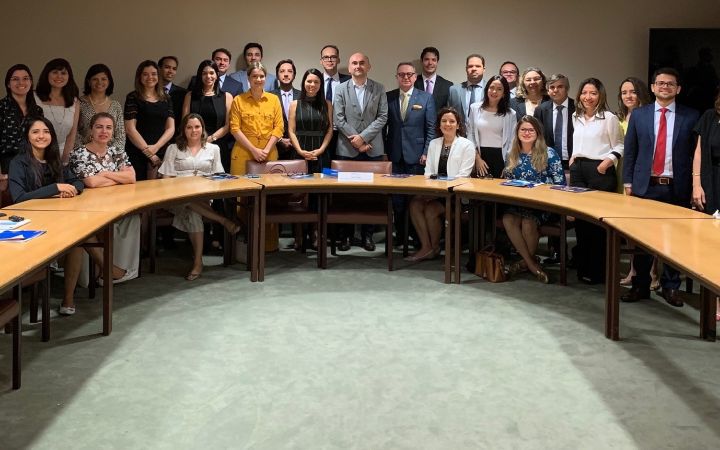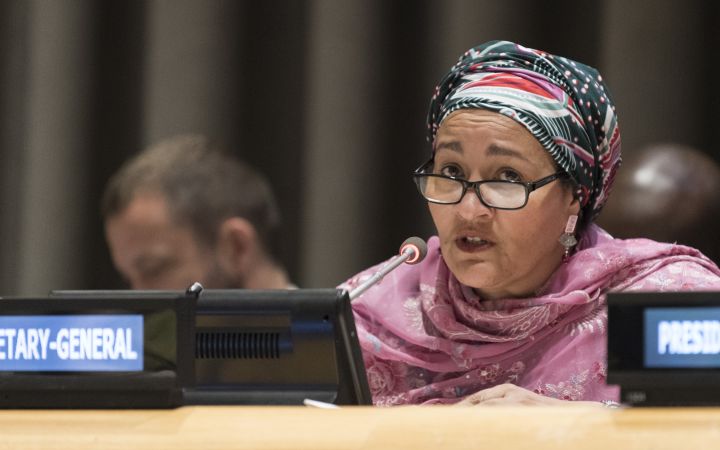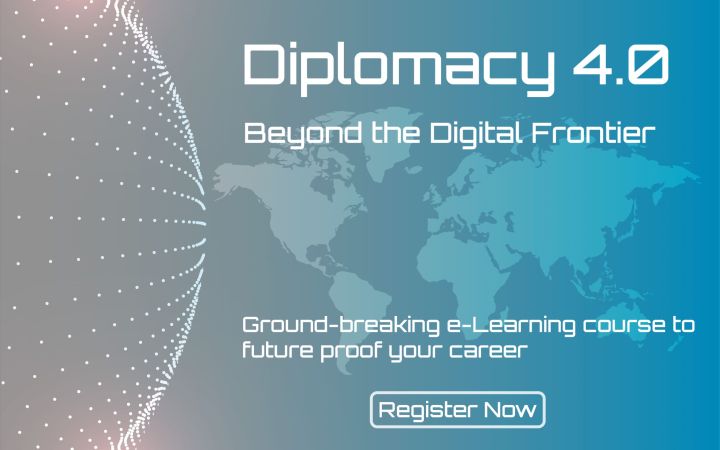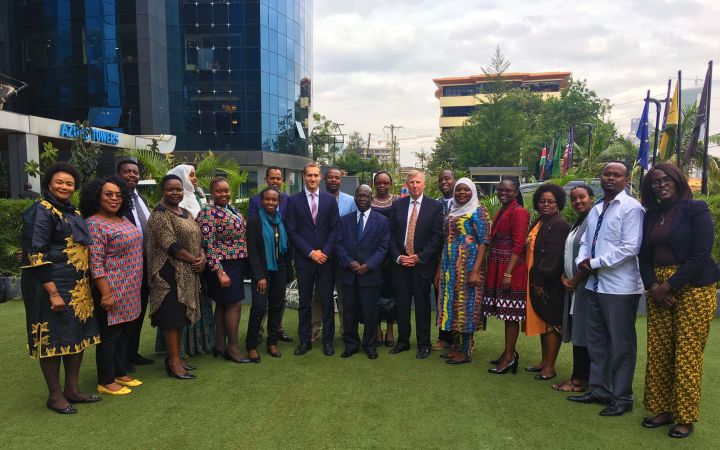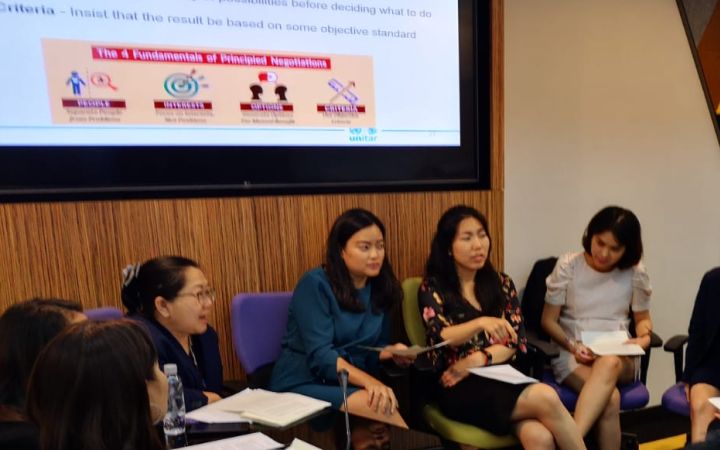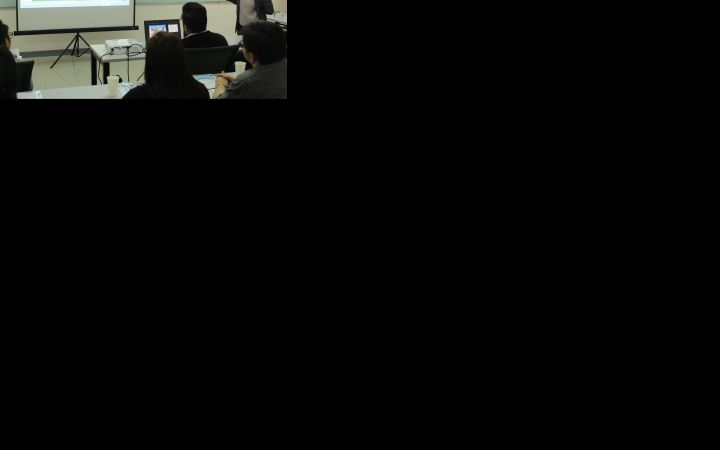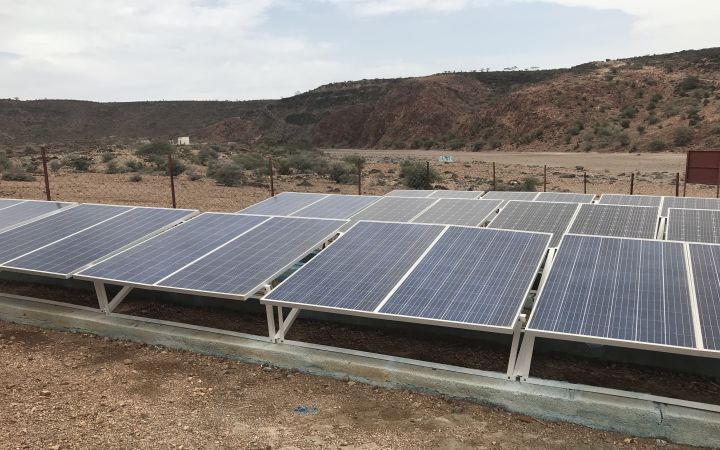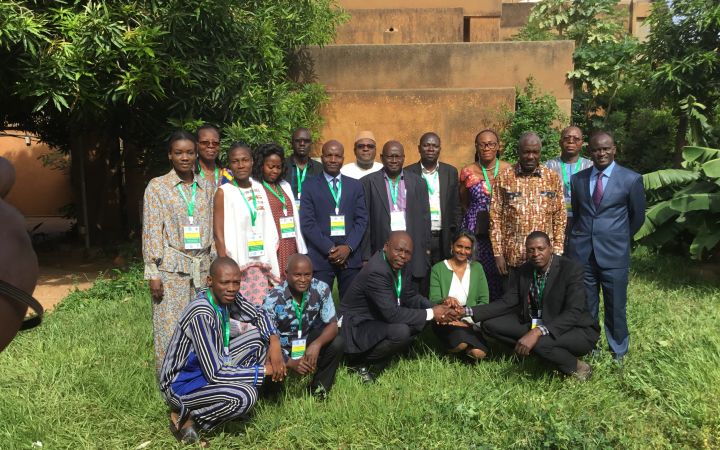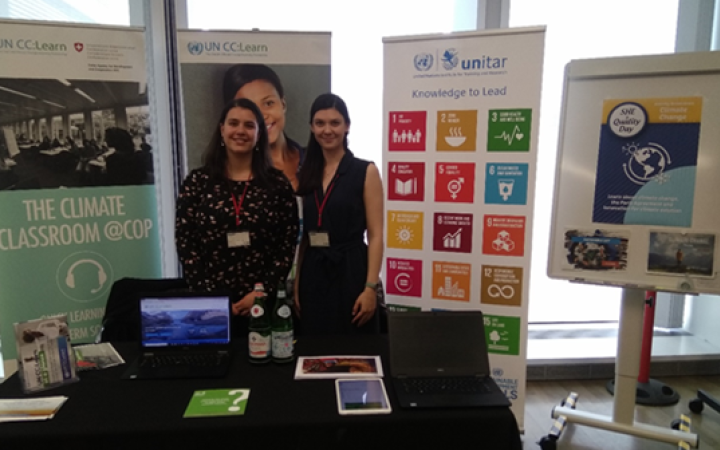Displaying 1241 - 1250 of 1557
21 August 2019 - New York, USA – The United Nations Institute for Training and Research (UNITAR) and Columbia Law School organized a Mediation briefing for students and faculty members from the University of Fortaleza - UNIFOR (Fundação Edson Queiroz - Universidade de Fortaleza), Brazil at the United Nations Headquarters in New York.
19 August 2019, Geneva, Switzerland - UNITAR is pleased to announce that registration is now open for the new free e-learning course on “Multilateral Conferences and Diplomacy for SIDs and LDCs Negotiators.” This course will take place from 14 October to 10 November 2019.
19 August 2019, Geneva, Switzerland - UNITAR is pleased to announce that registration is now open for the brand-new online course on “Diplomacy 4.0- Beyond the Digital Frontier.” This course will take place from 14 October to 24 November 2019.
15-16 August 2019, Nairobi, Kenya - As part of our three-year Memorandum of Understanding between UNITAR and the Ministry of Foreign Affairs of the Republic of Kenya, UNITAR’s Division for Multilateral Diplomacy held a workshop on Effective Writing and Multilateral Diplomacy in Nairobi, Kenya. It was designed to help participants learn basic and advanced writing and analytical skills for multilateral diplomacy; discover different forms and styles of diplomatic writing and reporting; and learn how to write Official and Diplomatic Correspondence in multilateral diplomacy.
07-08 August 2019, Brasilia, Brazil – UNITAR, the World Family Organization (WFO) and CIFAL Curitiba, in collaboration with the Government of the District of Brasilia, the National Association of Departments of Transportation (Associação Nacional de Detrans), and the Brazilian Association of State Roads Departments (Associação Brasileira dos Departamentos Estaduais de Estradas de Rodagem) and with the support of Diageo hosted the Road Safety International Conference in Brasilia, Brazil.
5-7 August 2019, Bangkok, Thailand- In keeping with its vision of providing the highest quality of training and innovation, the Division for Multilateral Diplomacy of the United Nations Institute for Training and Research successfully held the workshop in Bangkok on Preparing Effectively the Thai delegation for the next session of the United Nations General Assembly.
There were two objectives of the training course. The first objective was to prepare the Thai delegation, as well as the colleagues liaising from the capital, for the 74th United Nations General Assembly. The second objective was to provide necessary skills to diplomats involved in the United Nations Affairs to perform more effectively in their work, as well as during sessions of the General Assembly.
There were two objectives of the training course. The first objective was to prepare the Thai delegation, as well as the colleagues liaising from the capital, for the 74th United Nations General Assembly. The second objective was to provide necessary skills to diplomats involved in the United Nations Affairs to perform more effectively in their work, as well as during sessions of the General Assembly.
06 August 2019, Quezon City, Philippines – The International Training Centre for Authorities and Leaders in Philippines (CIFAL Philippines) in collaboration with the International Organization for Migration, the International Labour Organization and UN Women launched the Global Migration Professional Course at the School of Statistics, University of the Philippines Diliman.
28 July 2019, Geneva, Switzerland – The Global Plan of Action Coordination Unit, hosted by UNITAR, has embarked on its first field project, together with colleagues from UNHCR Djibouti, the World Food Programme (WFP) and the German Foreign Ministry. To kick off the project, the team has developed a set of common objectives with major humanitarian and host government partners in Djibouti. They also assessed the current state of energy provision in two of the three refugee camps in the country, as well as in other premises used for humanitarian operations that support displaced people, such as food and medicine storage centres.
The project jointly developed by UN CC:Learn/UNITAR and AGRHYMET Regional Center (ARC) has been launched in Niger
5-6 June 2019, Singen, Germany - UN CC:Learn participated in Nestle’s annual awareness raising event with a focus on Safety, Health, Environment & Food Safety. The so-called SHE & Quality Days took place at Nestle’s R&D center in Singen, Germany. The Product Technology Center is responsible for developing new products in the field of "food", such as soups, sauces, pizza, seasoning, bouillons, for countries all around the world.


